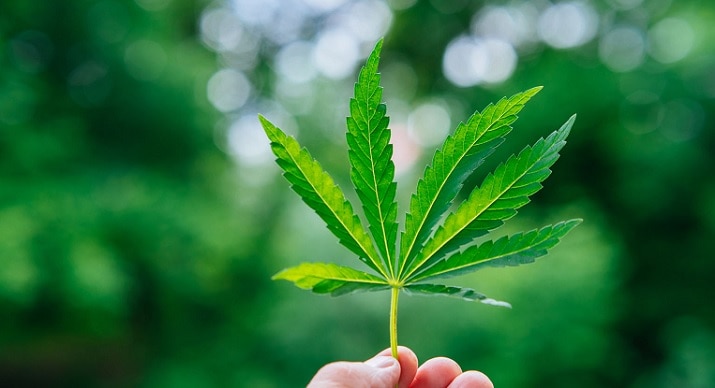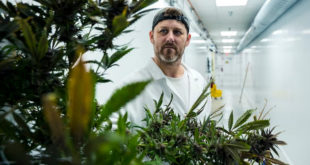
During April of 2019, more people in the U.S. searched online for cannabidiol (marijuana’s active component) than for acupuncture, dieting, meditation, exercise, veganism, and vaccination. The ever-growing interest in cannabis is inspired by media that widely promotes the plant as a panacea. And of course, a rapid rise in the medical and recreational use of marijuana not only in the U.S. but in other countries can’t go unnoticed.
The popularity of cannabis products specifically for mental health brought a subject for discussion for scientists, doctors, and patients. Marijuana and its healing properties is a tricky question that can’t have a straightforward answer. Let’s see why.
How does medical marijuana work?
Before we proceed to the effects of medical cannabis on mental health and what you should know about the dangers of using marijuana, it’s useful to understand the principle of its work.
The cannabis plant contains over 100 different chemicals known as cannabinoids. Each one has a different effect on the body. Delta-9-tetrahydrocannabinol (THC which makes users high) and cannabidiol (CBD) are the main chemicals used in medicine.
There’s an endocannabinoid system in the human body. Cannabinoid receptors can be found in the brain, lungs, liver, kidneys, and immune system. When smoked or ingested, marijuana cannabinoids activate cannabinoid receptors in the user’s body. As a result, different physiological and psychological processes are activated.
Cannabis ingredients show promise as a potential new treatment for many ailments. But can medical marijuana effectively treat psychiatric conditions? Besides, is weed addictive? AddictionResource has the answer.
Alternative marijuana treatment – a blessing or a curse?
For now, cannabis cannot be categorized as strictly useful or harmful. According to the review of scientific research on the health benefits of cannabis, the relationship between cannabis and mental health is complicated.
Let’s talk about depression as an example. It’s a fact that the endocannabinoid system plays an important role in the regulation of mood. Some patients say that cannabis helps them with their depression.
The truth is that there’s no substantial research-based association between marijuana use and changes in the course or symptoms of depressive disorders. Furthermore, the existing data is mixed and rather supports the idea that cannabis is likely to provoke the development and worsening of depression.
The links between medical marijuana and other psychiatric conditions also remain unclear due to the complexity of the plant. For example, THC is proven to induce anxiety if the dose is wrong or the strain is not compatible with the user. CBD has been proven to have anxiolytic and antipsychotic effects. That’s why those who want to avoid being “high” and the risks of triggering anxiety opt for high CBD and low THC marijuana formulations.
Here’s what you should know about the dangers of using marijuana. The above-mentioned review states that:
- Cannabis may raise the risk of regular users developing a social anxiety disorder.
- Frequent cannabis use contributes to developing schizophrenia or other psychoses.
- Daily use may worsen the symptoms of existing bipolar disorder.
- Heavy weed users report suicidal thoughts more often than non-users.
The effects a person can experience depend on a variety of factors, including:
- the potency level;
- the presence of other chemicals in the composition of a product;
- the dosage;
- the frequency of use;
- previous experience of marijuana use and the ability to titrate the dose;
- individual susceptibility to psychiatric conditions.
Due to this complexity, the current scientific findings for the use of marijuana in treating mental health problems are mixed, as marijuana has been shown as having both beneficial and harmful effects.
What are addiction risks?
Is weed addictive? This question is no less confusing. Statistics say that approximately 1 out of 10 people who ever try cannabis at least once in their lives will likely become addicted. This sounds scary. But if we put another way, this will mean that about 90 percent of people who will try cannabis won’t become addicted. However, a large minority of people have trouble with cannabis, and for those people, it’s important to find marijuana addiction help.
How to minimize the risk of addiction if you use medical marijuana? Avoid self-medication and buying weed off the streets. Follow your doctor’s recommendations. Also, here, you can find “Lower-Risk Cannabis Use Guidelines.”
Is marijuana the most effective treatment for you?
The purpose of using medical cannabis plays its role. The research found out that when people use the substance to cope with negative emotions, they can face difficulties with mental health and addiction. Mind-altering substances, especially THC-containing products, can act both as positive and negative reinforcers.
Simply put, marijuana can reward you by boosting positive feelings. But according to the traditional, evidence-based approach to the treatments of most psychiatric conditions, patients should confront difficult emotions and deal with the situations that cause them, but not avoid them. It looks like marijuana can help with the result, but not with the cause of negative emotions. With time, suppressed negative thoughts and memories can provoke the development or worsening of psychological symptoms.
Doctors emphasize that mind-altering substances cannot replace therapy. Moreover, the abuse of these substances for temporary relief from uncomfortable psychiatric symptoms can end up with addiction. And then, a person will need to find marijuana addiction help.
Cannabis can also be used for treating addictions to other substances. When the goal is to reduce harm, then it makes sense to replace opioids by cannabis. There’s moderate evidence that marijuana can relieve the withdrawal syndrome and cravings.
So, current scientific evidence doesn’t show that cannabis doesn’t improve mental health. It reveals how little we know and encourages further, more rigorous research on the effects of this plant on the mind.
 AZ Marijuana Arizona Marijuana Info
AZ Marijuana Arizona Marijuana Info






